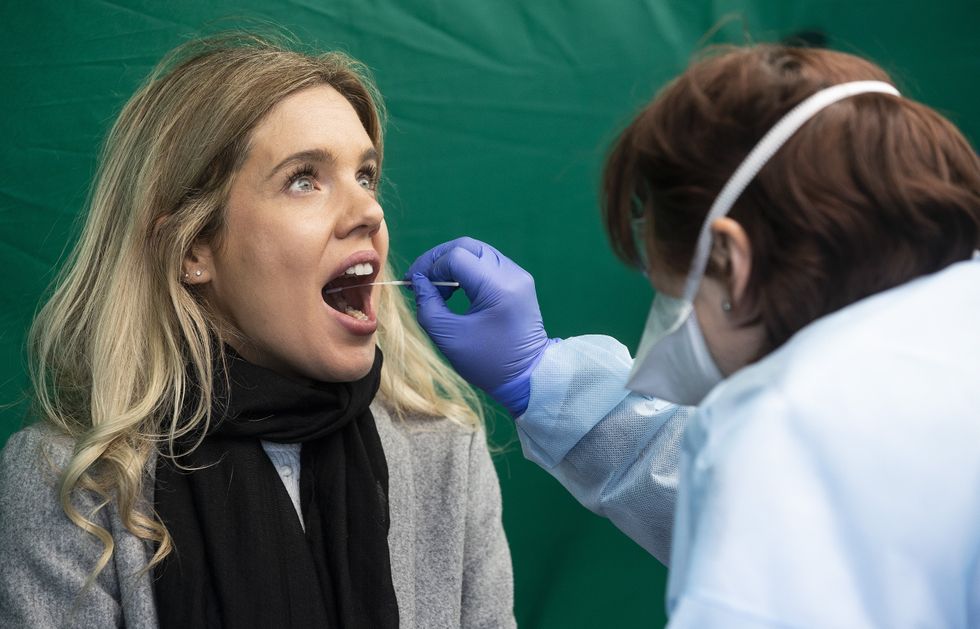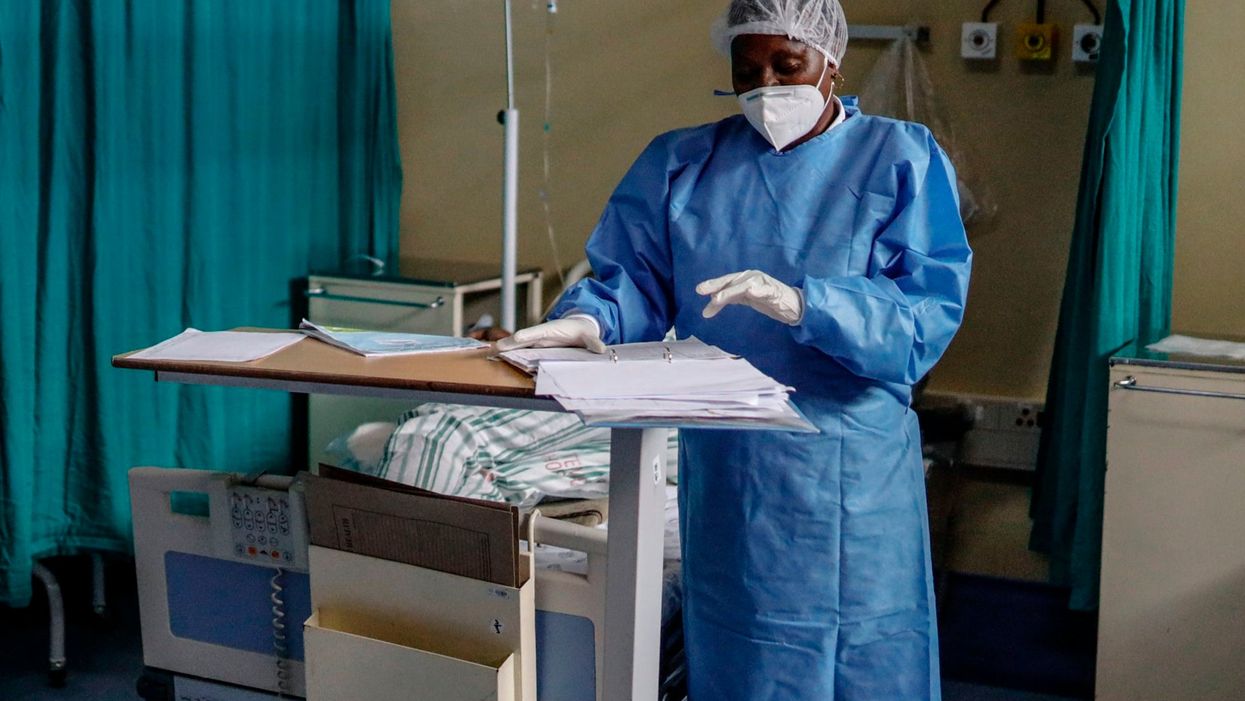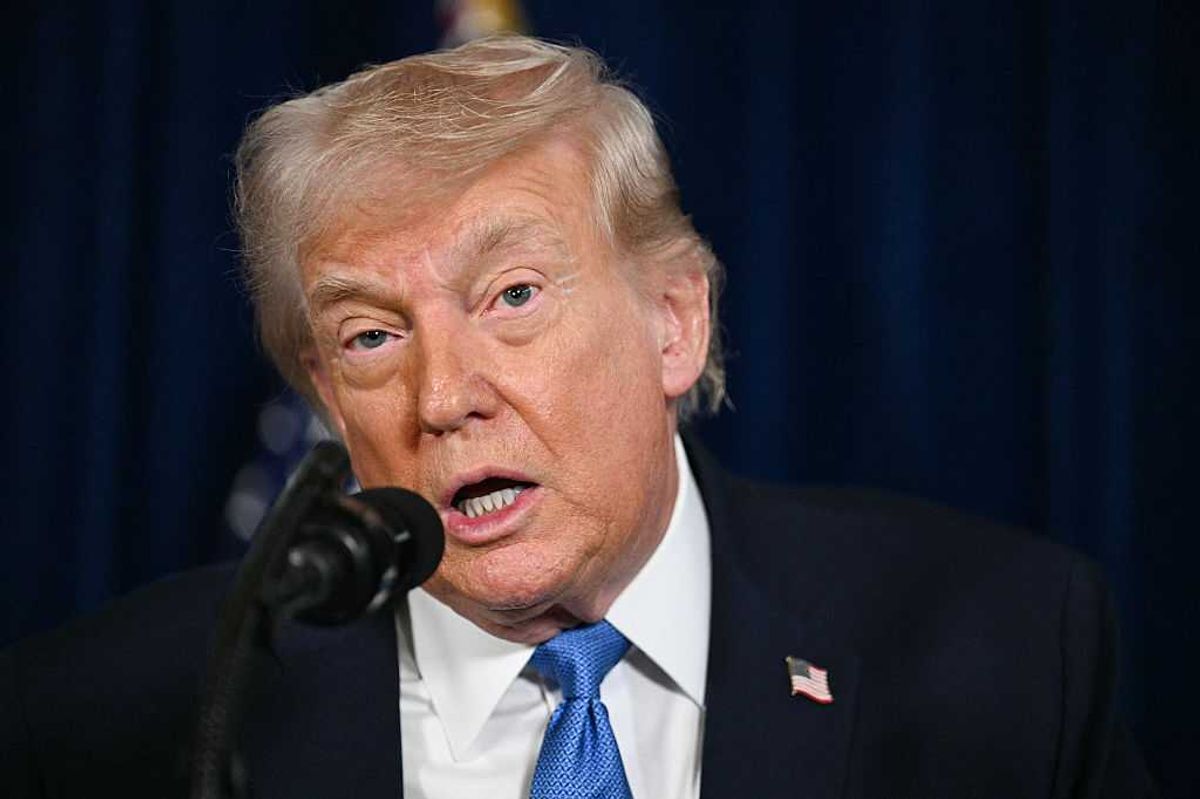Kate Plummer
Nov 27, 2021
In Groundhog Day news, scientists have found a new variant of coronavirus that is causing concern.
The B.1.1.529 variant, named by the World Health Organisation (WHO) as omicron, is thought to be the most transmissible version yet and has now spread to around the world following its first discovery in Hong Kong, South Africa and Botswana,
There are also concerns that vaccines may not be as effective as one would hope in blocking it – though more research must be done to clarify this.
Meanwhile, the UK and other countries have red-listed affected countries to stop people travelling with an invisible extra passenger and spreading it around, and scientists are rushing to gather evidence about the risk it poses.
As they do so, here’s everything we know about Covid’s unwanted reboot.
What is the new variant?
The new variant, which should be named ‘the for f**ks sake not this again variant’, has instead been named omicron after the 15th letter in the Greek Alphabet. Described at early stages as the worst scientists have seen in the pandemic, it has around 40 unusual mutations in the spike protein – the part of the virus vaccines use to block it – meaning it could be more transmissible.
Mutations in the spike protein can affect the virus’s ability to infect cells and spread, but also make it harder for immune cells to attack the pathogen and the number of mutations is about double the number associated with the Delta variant.
On 26 November, the World Health Organisation designated it a variant of concern. It also said there is nothing to suggest the symptoms of the virus are different.

Where has it been found?
It’s dotting about and has been found in 22 countries since it was first reported in South Africa, Hong Kong and Botswana. Scientists believe that as many as 90 per cent of new cases in Gauteng, one of the provinces in South Africa one of the areas where the strain was first reported, could be B.1.1.529.
On Friday, it was confirmed that cases had been identified in Israel and Belgium, and there have been 22 cases in England now confirmed.
The Netherlands was also of concern, with Dutch authorities saying 61 people tested positive for Covid-19 arriving on two flights from South Africa on Friday. 13 of those were omicron. The country is implementing early closing times for hospitality and cultural venues, and limits on home gatherings.
How fast is it spreading?
It’s hard to tell. Dr Susan Hopkins, chief medical adviser to the UK Health and Security Agency, said the R rate – which measures how fast the virus spreads – in Gauteng is now 2, a level of transmission not recorded since the beginning of the pandemic. For an R of anything above 1, an epidemic will grow exponentially.
And the 9 cases found in Scotland have been linked to a single event. However, none were in people with a recent travel history to countries in southern Africa, or known links with others who have travelled there causing some concern about community spread.
To help with tracking and tracing cases, the UK has started doing “loop back” exercises, where previously collected PCR samples are analysed to identify the variant they contain.
Some scientists have suggested it has been spreading in the UK since the end of October and creating mild asymptomatic cases, but others disagree and think it is fairly new.
Dr Richard Lessells, an infectious diseases physician at the University of KwaZulu-Natal in Durban, said this was “plausible” given that this was the tail end of the Delta wave in South Africa. “This is consistent with how and when we’ve seen other variants of concern emerge; for example, the Beta variant emerged last year towards the tail end of our first wave,” he said.
What are experts saying?
As ever, attempts to “follow the science” are being compounded by scientists having mixed opinions. Speaking to Sky News, Tom Peacock, a virologist at Imperial College London, described the mutations as “really awful” but said cases were currently “super low”.
Francois Balloux, professor of computational systems biology at University College London, said it should be closely monitored but “there is no reason to get overly concerned, unless it starts going up in frequency in the near future”.
Speaking to The Telegraph, Dr Emma Hodcroft, a molecular epidemiologist at the University of Bern, said: “We cannot perfectly predict virus behaviour from mutations.
“Even lab work doesn’t perfectly mirror what happens in complex, whole-body real-life. Other, alarming variants have failed to spread very far in the past. We need more data.”
While Professor Danny Altmann, an immunologist at Imperial College, London, added: “We have all become pandemic fatigued, yet if this was a report of a terrorist threat, we would now be raising the threat level from amber to red.”
To The Mirror, Professor Ewan Birney, deputy director general of EMBL and director of EMBL’s European Bioinformatics Institute (EMBL-EBI), said: “Early evidence from genomic surveillance in South Africa suggests that B.1.1.529 is a serious cause for concern. The South African surveillance and epidemiology groups should be commended for their timely data collection, analysis and transparency.”
Undoubtedly, other scientists will have more to add in the coming days and weeks.
Will the vaccines protect people against it?
Mixed opinions once more. While it is too early to say for sure, today the WHO said that most cases of the virus appear to be mild and that there is no evidence to suggest vaccines are not effective against it. However, the organisation made it clear that there is still a lot we don’t know about the new strain.
Work is under way to see whether the new variant may be causing new infection in people who have already had coronavirus or a vaccine, or whether waning immunity may be playing a role.
Professor James Naismith, director of the Rosalind Franklin Institute in Oxford, has said the new variant will “almost certainly” make vaccines less effective, though they would still offer protection.
Professor Sir Andrew Pollard, who helped create the Oxford/AstraZeneca vaccine, expressed optimism that existing vaccines will be effective at protecting against serious disease caused by the new omicron variant.
He also said it is “extremely unlikely” it will cause a “reboot” of the pandemic in Britain as he offered tentative hopes the current jabs will still confer some degree of protection against the variant. He also said a new vaccine could be developed “very rapidly” if required because they now have a “well-oiled” process.
Pfizer/BioNTech, which has produced a vaccine against Covid-19, is already studying the new variant’s ability to evade vaccines and had begun work on a variation of their jab to tweak it if needs be.
Oxford University has also indicated the AstraZeneca jab could be quickly adapted to match the new strain.
What is the UK government doing to control the variant?
Perhaps having learnt from its less than hasty rush to curb travel from India when the Delta variant first found there caused concern, the UK government has placed South Africa under red list travel restrictions, effective from midday on Friday.
COVID-19 UPDATE: @UKHSA is investigating a new variant. More data is needed but we're taking precautions now. Fro… https://t.co/pQHoCMYJmV— Sajid Javid (@Sajid Javid) 1637873461
The ban will also cover flights from Namibia, Lesotho, Botswana, Eswatini and Zimbabwe. Scotland confirmed all arrivals from the countries must self-isolate and take two PCR tests from midday on Friday, while anyone arriving after 4am on Saturday will need to stay at a managed quarantine hotel.
Malawi, Mozambique, Zambia and Angola will face travel restrictions from Sunday.
The red list had previously been scrapped earlier this month, with final countries being taken off the list.
Recent arrivals from southern Africa will also be tracked down and offered tests in an effort to avoid the introduction of the new strain. Between 500 and 700 people typically travel to the UK from South Africa each day.
In addition, Prime Minister Boris Johnson has announced that said anyone arriving in the UK will be asked to take a PCR test for Covid-19 on the second day and must self isolate until they provide a negative test. The rules on face coverings in shops and on public transport will be tightened, with those who refuse them risking £200 fines, while any close contacts of anyone who tests positive with the variant will have to isolate for ten days.
Health secretary Sajid Javid has said if evidence emerges that the variant is no more dangerous than delta, the restrictions will be immediately removed but until that point they are set to be reviewed in three weeks.
The government’s booster jab programme is being... boosted and Johnson has said that everyone over the age of 18 will now be eligible to get jabbed for a third time by the end of January. Previously, the hattrick of jabs was only available to over 40s and vulnerable groups.
The gap between second doses and boosters, has also been halved from six months to three and the government is offering second jabs to 12-15 year olds.
There was also a palaver about with government scientist Jennie Harries saying people shouldn’t socialise if not “necessary” and Downing Street saying that people should not listen to that advice.
Further restrictions haven’t been ruled out as more data emerges.
What are other countries doing?
Israel also announced it will ban its citizens from travelling to the same six countries and has also barred travellers from Mozambique, while the European Commission has announced plans to stop flights from the region.
Spain has banned unvaccinated Brits from entering the country and Switzerland has ordered that passengers from other countries where the variant has been detected, including the UK and the Netherlands, provide proof of a negative coronavirus test and quarantine for 10 days.
On Tuesday night, WHO released a statement saying all vulnerable people - including over-60s - should postpone travel plans following the emergence of the variant.
Greece has made it mandatory for people over the age of 60 to get a jab and Nigeria has started enforcing mandatory Covid vaccinations for all civil servants.
Meanwhile, European Commission chief Ursula von der Leyen said it was time to consider mandatory vaccines and other countries have also put in place various measures.
What happens next?
WHO is continuing to assess the variant after it was upgraded to a variant of concern.
Professor Neil Ferguson, giving evidence at the government’s science and technology committee today said it might take until around the end of the month to find out how deadly the strain is.
Some variants that were identified in the past caused initial concern but then were outflanked by others and disappeared, so whether omicron causes the world to grind to a halt once more is a matter of time to decide.
Top 100
The Conversation (0)














